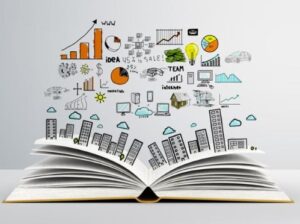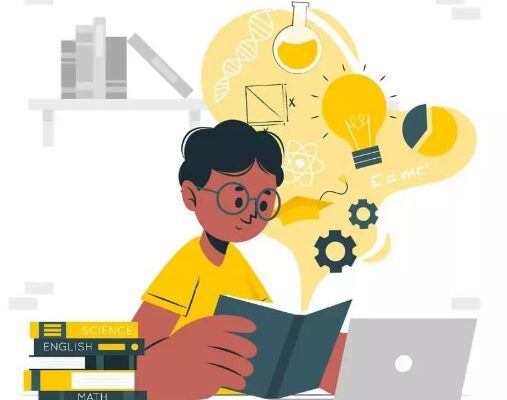Education: A Path to Success by freegame24.xyz
An Introduction to Education
Education serves as a vital foundation for both individual and societal advancement. It encompasses a wide range of learning experiences, from early childhood programs to postgraduate studies, each contributing uniquely to personal and community development. Through education, individuals acquire essential knowledge, skills, and values that enable them to navigate the complexities of modern life effectively.
From the moment a child enters a classroom, they begin a journey that influences their cognitive, social, and emotional growth. Early education lays the groundwork for future learning by fostering curiosity and a love for discovery. As students progress through different educational stages, they encounter diverse subjects and experiences that shape their perspectives and intellectual abilities.

Beyond the classroom, education equips individuals with critical thinking skills and the ability to analyze and solve problems. This intellectual toolkit is invaluable in various aspects of life, from personal decision-making to professional endeavors. Education also instills a sense of discipline and perseverance, qualities that are essential for achieving long-term goals.
In today’s fast-paced world, the importance of education extends to staying current with technological advancements and industry developments. Lifelong learning becomes essential, as it allows individuals to continuously update their skills and remain competitive in the job market. Whether through formal education or self-directed learning, the pursuit of knowledge is a lifelong endeavor that keeps individuals adaptable and resilient.
Education also has a significant impact on economic development. A well-educated workforce is a key driver of innovation and productivity, contributing to a nation’s overall prosperity. By providing individuals with the skills needed to excel in various industries, education supports economic growth and stability.
Moreover, education promotes social cohesion by teaching values such as tolerance, empathy, and respect for diversity. It helps build more inclusive societies where individuals from different backgrounds can collaborate and thrive together. Through shared learning experiences, education fosters a sense of community and mutual understanding.
In essence, education is a powerful tool that transforms lives and societies. It opens doors to new opportunities, broadens horizons, and lays the foundation for a better future. As we explore the various dimensions of education, we can appreciate its profound impact on shaping the world we live in.
Advantages of Education
The advantages of education are numerous, impacting both personal growth and career advancement. Education nurtures critical thinking and promotes intellectual development, encouraging individuals to engage with the world thoughtfully and analytically. This intellectual maturity is essential for making informed decisions and tackling complex challenges effectively.
On a professional level, education is a key driver of financial stability and career success. Individuals with higher levels of education often enjoy better job prospects and higher income potential. Advanced degrees and specialized training can open doors to more prestigious and rewarding career paths, providing a significant return on investment.
Furthermore, education provides the foundation for a skilled and adaptable workforce. It equips individuals with the necessary knowledge and competencies to excel in various industries. As job markets evolve and new sectors emerge, a solid educational background ensures that individuals can pivot and adapt to changing career landscapes.
Education also plays a crucial role in personal empowerment. It offers individuals the tools to improve their circumstances and achieve their goals. With education, people can access opportunities that might otherwise be out of reach, allowing them to break cycles of poverty and achieve upward mobility.
In addition, education fosters a sense of discipline and resilience. The process of learning and mastering new skills requires dedication and perseverance, qualities that are valuable in both personal and professional contexts. These attributes enable individuals to overcome obstacles and pursue long-term objectives with determination.
Education also encourages lifelong learning and continuous self-improvement. In a rapidly changing world, the ability to learn and adapt is more important than ever. Ongoing education allows individuals to stay current with advancements in their fields, ensuring they remain competitive and capable in their careers.
Moreover, education contributes to a more informed and engaged citizenry. Educated individuals are more likely to participate in civic activities and contribute to their communities. They are better equipped to understand and address societal issues, making them valuable contributors to the collective well-being.
In summary, the benefits of education extend far beyond the classroom. It fosters critical thinking, enhances career prospects, and promotes personal empowerment. By equipping individuals with the skills and knowledge needed to succeed, education serves as a cornerstone for both personal and societal development.
Education’s Social Impact
Education significantly contributes to social development by fostering a more inclusive and equitable society. It plays a critical role in alleviating poverty, as acquiring knowledge and skills enables individuals to secure stable employment and improve their living standards. This not only benefits the individual but also has a positive ripple effect on families and communities, helping to break the cycle of poverty over time.
By providing equal access to learning opportunities, education serves as a powerful tool for promoting social equality. It offers a pathway for marginalized groups to improve their social and economic standing, thus narrowing the gap between different segments of society. Education fosters understanding and respect for diversity, creating a more cohesive and tolerant community.

In addition to promoting equality, education stimulates community empowerment. When people are educated, they are more likely to engage in civic activities, participate in decision-making processes, and contribute to their communities. This active participation strengthens democratic institutions and promotes social stability. Educated individuals are better equipped to advocate for their rights and the rights of others, fostering a culture of inclusivity and respect.
Furthermore, education is a catalyst for innovation and progress. An educated populace can drive technological advancements and create new solutions to pressing societal issues. The collective intellectual capacity of educated individuals can lead to breakthroughs in various fields, from healthcare to environmental sustainability. This innovation not only enhances the quality of life but also positions communities and nations to compete effectively on a global scale.
Education also plays a pivotal role in promoting health and well-being. Educated individuals are more likely to make informed decisions about their health, leading to better health outcomes and longer life expectancy. They are also more likely to seek out and utilize healthcare services, contributing to overall public health improvements.
In essence, the impact of education on social development is profound and multifaceted. It empowers individuals, promotes equality, drives innovation, and enhances public health. By investing in education, societies can foster a more inclusive, equitable, and prosperous future.
Educational Challenges
The education sector faces a multitude of challenges that hinder its effectiveness and accessibility. One of the most pressing issues is the disparity in access to quality education. In many underserved communities, students lack the necessary resources, such as well-trained teachers, updated textbooks, and modern facilities. This inequity creates a significant gap between different socioeconomic groups, perpetuating cycles of poverty and limiting upward mobility.
Affordability is another major hurdle. The rising costs associated with higher education, including tuition fees, textbooks, and living expenses, can be prohibitive for many families. Scholarships and financial aid programs exist, but they are often insufficient to meet the needs of all students. Consequently, many individuals are forced to take on substantial debt or forego higher education altogether, limiting their career prospects and potential earnings.
Moreover, the traditional educational system is struggling to keep pace with the rapid advancements in technology and the evolving demands of the job market. The skills required for today’s workforce are continually changing, necessitating a more dynamic and flexible approach to education. However, many educational institutions are slow to adapt, resulting in graduates who are ill-prepared for the modern work environment. This mismatch between education and industry needs calls for a reevaluation of curricula and teaching methods to better equip students for future challenges.
Teacher shortages and burnout also pose significant challenges. Educators are often overworked and underpaid, leading to high turnover rates and a lack of experienced teachers in many schools. This situation not only affects the quality of education but also places additional stress on remaining staff, further exacerbating the problem. Addressing this issue requires improved working conditions, competitive salaries, and professional development opportunities to attract and retain talented educators.
Finally, there is the challenge of integrating technology into the classroom effectively. While digital tools and online resources have the potential to enhance learning, they also require substantial investment and training. Many schools, especially in low-income areas, lack the necessary infrastructure and expertise to implement these technologies successfully. This digital divide can widen existing educational gaps, leaving some students at a disadvantage.
In summary, tackling these educational challenges requires a multifaceted approach that addresses both systemic issues and immediate needs, ensuring that all students have the opportunity to succeed.
The Future of Education
As technology continues to advance, digital learning and remote education are transforming the educational landscape. Online courses and virtual classrooms provide flexible, accessible learning options that cater to a diverse range of students globally. This shift is not only making education more inclusive but also more adaptable to the unique needs of each learner.
One of the key trends shaping the future of education is the integration of artificial intelligence (AI) and machine learning. These technologies can personalize learning experiences by analyzing students’ strengths and weaknesses, thereby offering customized resources and feedback. AI-powered tutoring systems and adaptive learning platforms are already showing promise in enhancing student engagement and improving learning outcomes.
Gamification is another emerging trend that is making learning more interactive and enjoyable. By incorporating game elements such as rewards, challenges, and leaderboards into educational activities, gamification can motivate students and make complex subjects more accessible.
Virtual and augmented reality (VR and AR) technologies are also making their mark on education. These tools offer immersive learning experiences that can bring abstract concepts to life. For instance, VR can take students on virtual field trips to historical sites, while AR can overlay digital information onto real-world objects, providing a hands-on learning experience.
In addition, there is a growing emphasis on skills-based education. As the job market evolves, there is a greater demand for practical skills and competencies that can be directly applied in the workplace. Micro-credentials and online certifications are becoming popular as they allow individuals to acquire specific skills quickly and affordably, often without the need for a traditional degree.
Collaborative learning is also gaining traction, facilitated by digital platforms that enable students to work together on projects and share knowledge across geographical boundaries. This approach not only enhances critical thinking and problem-solving skills but also prepares students for the collaborative nature of the modern workplace.
Lastly, the rise of open educational resources (OER) is democratizing access to quality education. These freely available teaching and learning materials provide an affordable alternative to traditional textbooks, making education more accessible to a broader audience.
Conclusion
Education is a cornerstone of both individual achievement and societal advancement. It equips individuals with the tools needed to navigate life, solve problems, and make informed decisions. This empowerment through learning drives personal growth, enhances career prospects, and contributes to overall well-being.
In a rapidly evolving world, the significance of lifelong learning cannot be overstated. Continual education allows individuals to stay current with technological advancements and industry changes, ensuring they remain competitive in their careers. This adaptability is crucial in a global economy where the skills required for success are constantly shifting.

Moreover, education fosters a more inclusive and equitable society. By providing equal access to learning opportunities, it helps bridge the gap between different socioeconomic groups, promoting social cohesion and reducing disparities. An educated populace is better equipped to engage in civic activities, advocate for their rights, and contribute positively to their communities.
Innovation and progress are also heavily influenced by education. Educated individuals drive technological advancements and create solutions to complex problems, enhancing the quality of life and positioning societies to thrive on a global scale. Additionally, education promotes better health outcomes, as informed individuals are more likely to make healthier choices and utilize healthcare services effectively.
In addressing the various challenges within the education sector—such as access, affordability, and the integration of technology—it is essential to adopt a multifaceted approach. By doing so, we can ensure that education remains a powerful force for positive change.
As we look forward, investing in education and embracing innovative teaching methods will be key to fostering a more prosperous and inclusive world. Prioritizing education will enable future generations to thrive and contribute meaningfully to society, creating a better future for all.



